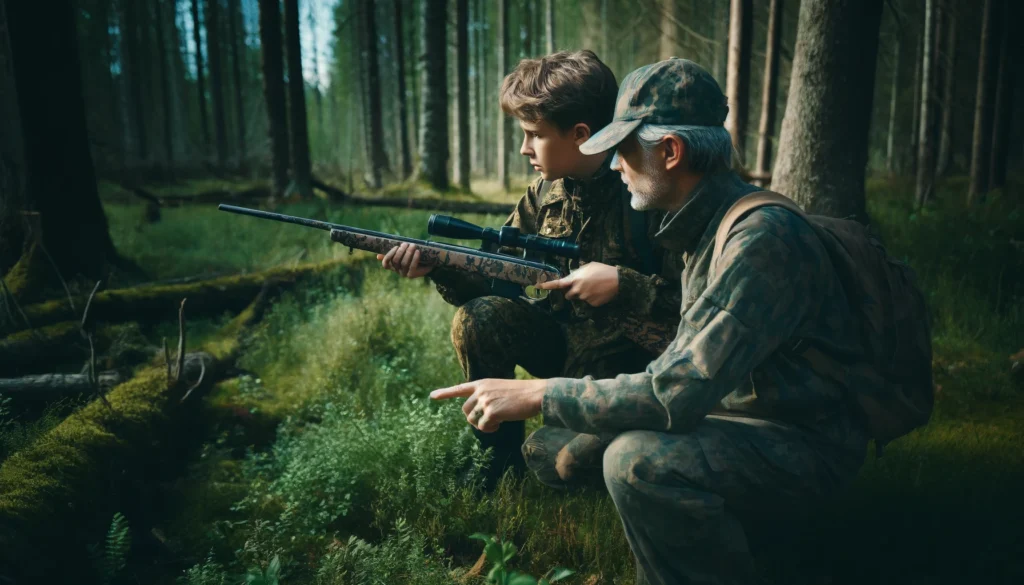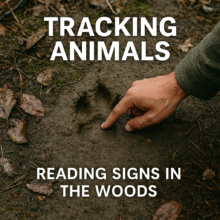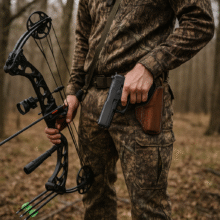A Hunter’s First Experience: Embracing the Call of the Wild

Table of Contents
- Introduction
- 1. Preparation: The Foundation of Success
- 2. The First Day in the Field
- 3. The Hunt
- 4. The Harvest
- 5. Returning Home
- 6. Integration into the Hunting Community
- 7. Advancing Skills and Techniques
- 8. Contributing to Conservation
- 9. Personal Reflections and Growth
- 10. Future Aspirations
- Conclusion
- Frequently Asked Questions (FAQs)
Introduction
Embarking on your first hunting trip can be both exhilarating and daunting. This narrative delves into the essential preparation and emotional journey of a novice hunter stepping into the wilderness for the first time. From the anticipation and preparation to the actual experience in the great outdoors, each moment offers valuable lessons and unforgettable memories.
1. Preparation: The Foundation of Success
1.1 Learning the Ropes
- Educational Courses: Before venturing out, the novice hunter completed a mandatory hunter education course, gaining knowledge about safety, wildlife laws, and ethical hunting practices.
1.2 Gear and Equipment
- Essential Gear: Understanding the importance of the right equipment, the hunter meticulously gathered a reliable rifle, appropriate ammunition, a sturdy hunting knife, and weather-appropriate clothing.
1.3 Mental and Physical Readiness
- Conditioning: Preparing physically through regular exercise and mentally by setting realistic expectations and objectives for the hunt.
2. The First Day in the Field
2.1 The Early Morning Start
- Awakening to Nature: The day began before dawn, with the novice hunter experiencing the serene beauty of the forest waking up, a profound moment that connected them deeply with nature.
2.2 Initial Challenges
- Navigating the Terrain: The physical challenge of navigating through dense and unfamiliar terrain tested their stamina and determination.
3. The Hunt
3.1 Tracking and Patience
- Skills in Practice: Hours of silently tracking game, learning to read animal signs, and understanding wind direction were crucial in getting closer to wildlife.
3.2 The Moment of Truth
- Ethical Consideration: Faced with the opportunity, the hunter experienced the weight of the responsibility to make a clean and ethical shot, reflecting deeply on the significance of taking an animal’s life.
4. The Harvest
4.1 Processing the Game
- Respect for the Kill: The hunter learned to field dress the game, an essential skill that honors the animal by utilizing as much of it as possible.
4.2 Reflections on Sustainability
- Conservation Awareness: Understanding the role of hunters in wildlife management and conservation, the novice felt a renewed respect for nature and the importance of sustainable practices.
5. Returning Home
5.1 Lessons Learned
- Growth and Insight: The hunter returned with not just physical reminders of the hunt but also with a greater appreciation for the patience, skill, and respect required to hunt ethically.
5.2 Sharing the Story
- Inspiring Others: Sharing their experiences with friends and family, the novice hunter inspired others with tales of challenge, success, and the raw beauty of nature.
6. Integration into the Hunting Community
6.1 Joining Local Clubs and Groups
- Community Engagement: After their first hunt, the novice hunter sought out local hunting clubs and online forums to connect with more experienced hunters, enhancing their learning through shared experiences and tips.
6.2 Participating in Events
- Learning Through Doing: Attending hunting workshops, conservation activities, and social events further solidified their understanding of the hunting culture and conservation ethics.
7. Advancing Skills and Techniques
7.1 Advanced Training
- Continuous Improvement: To refine their skills, the novice hunter enrolled in advanced hunting courses focusing on specific techniques like bow hunting, tracking, and survival skills.
7.2 Specialty Hunts
- Diversifying Experience: As confidence grew, exploring different types of hunting such as waterfowl, big game, and upland bird hunting provided new challenges and learning opportunities.
8. Contributing to Conservation
8.1 Volunteering for Wildlife Management
- Giving Back: Engaging in local wildlife habitat restoration projects and participating in population control hunts to help maintain healthy wildlife ecosystems.
8.2 Advocacy and Education
- Spreading Awareness: Becoming an advocate for ethical hunting and conservation, the novice hunter began to educate others on the importance of sustainable practices and responsible wildlife management.
9. Personal Reflections and Growth
9.1 Journaling and Documenting
- Recording the Journey: Keeping a hunting journal helped the novice hunter reflect on personal growth, experiences, and the lessons learned from each outing.
9.2 Mentorship Role
- Passing on Knowledge: As skills developed, the novice hunter took on a mentorship role, helping guide other new hunters through their first experiences, sharing insights and fostering a supportive community.
10. Future Aspirations
10.1 Long-Term Goals
- Setting Higher Goals: With foundational experience established, setting goals for more challenging hunts and perhaps competing in hunting competitions.
10.2 Integrating Technology
- Utilizing Tools: Exploring the use of new technologies like GPS for hunting, trail cameras for wildlife monitoring, and modern gear to enhance efficiency and effectiveness in the field.
Conclusion
A hunter’s first experience is more than just a pursuit of game; it’s a profound journey that tests one’s skills, ethics, and connection to the natural world. It’s about entering the wilderness with respect and coming back with a deeper understanding of what it means to be part of the ecosystem. For many, it is the beginning of a lifelong passion and respect for hunting and conservation.
Frequently Asked Questions (FAQs)
What should I do if I don’t make a catch on my first hunt?
- Perspective on Success: Understand that success in hunting is not only measured by the harvest but by the overall experience and the skills gained.
How can I ensure I’m practicing ethical hunting?
- Continuous Education: Stay informed about ethical practices, participate in conservation efforts, and always adhere to regulations designed to sustain wildlife populations.
How can I balance hunting with wildlife conservation?
- Ethical Balancing: Practice selective hunting, adhere to bag limits, and engage in conservation efforts that support habitat preservation and species sustainability.
What are some ways to stay updated with hunting technologies and techniques?
- Staying Informed: Regularly read hunting publications, join online forums, and participate in industry expos to learn about the latest advancements and methodologies in hunting.







